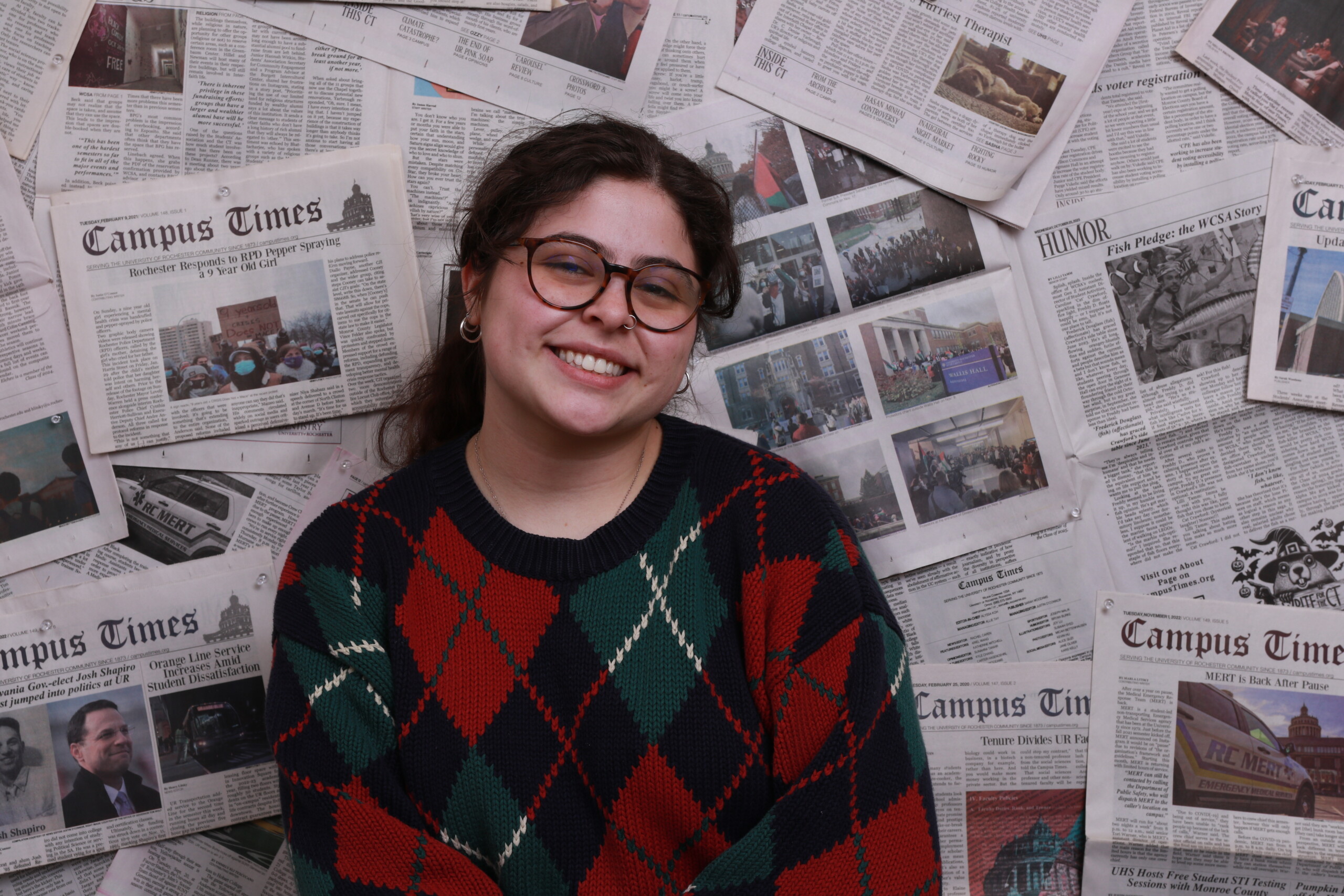Etta Marcus’ debut album, “The Death of Summer & Other Promises,” drew me in by the title and cover, which is a girl luxuriating in flowers in black and white. I had not heard of Etta Marcus before I saw her featured on the Instagram story of Matt Maltese, singer-songwriter of “As The World Caves In.” I went through and listened to Marcus’ debut album three times on different occasions. I went in unsure of how I would feel and left feeling just the same: unaware, confused, and slightly unaffected.
The album contains frequently visited topics of love and loss, friendships lost and dwelled on, girlhood, and growing up. On my first listen, I felt like my internal bias against intense synths and densely layered tracks got in the way of enjoying the songs. So, I waited until the next day, going in having already forgotten what I listened to.
On my second listen, I realized all of the songs streamed together; I wasn’t necessarily aware of when a song started and when it ended. Without sugarcoating it, each track sounded very similar, despite being very different in breaking them down. It went in one ear and out the other; her frequent and recurring vocal trill in each song sounded identical.
So I put it down — listened to different music as a palette cleanser— and revisited it again. I watched the lyrics as they passed over my phone screen, listening to each note and vocal shift as it went on. Yet the same feeling of unaffectedness remained within me.
Despite my overall indifference, there were good parts. Marcus has beautiful vocals, and even in her song “Dog Eyes,” we experience her layering them until they eventually get overshadowed by the intense synth tracks and gritty sound effects. “Dog Eyes” was my favorite track off the album, featuring a slow build-up and clarity in Marcus’ vocals. The lyrics talk of love, a consuming one, maybe not a healthy one, but bring nothing new to the conversation. There is an unnecessary gritty shift in the song that could have been amazing if they did not cover her voice with battling tracks.
But there is a track that features lyrics with more grit, something chewable, analyzable, and more of a fresh take than seen in other songs on the album. “Lovesick Boy Prays” mixes religious ideology, love, and toxic behaviors. There is a grainy track and the use of the same vocals, going up then down, up then down, which takes away from the potential of this song. It features a rapid breathing sound in the middle of the song, adding a fun callback to the lyrics. This song held so much potential, especially if it featured a more acoustic sound. But it does the opposite, containing synth tracks like a background noise of rapid beeps throughout the song.
Tracks that did not resonate with me were “Girls That Play” and “Theatre,” due to my dislike of overused synths and reverb. “Girls That Play” is the more upbeat song,— beat-wise — and vocal-wise, but that gave it more of a stale take for me. It felt repetitive and tiring. The lyrics are about girlhood and friendship, but gave nothing more than that. “Theatre,” the opening track, being the one that sets the theme for the entirety of the album, contains loud-sounding tracks and intense vocal reverb, hiding Marcus’ beautiful dark vocals. This song is about a preformative lustful relationship, repeating the same lyric: “I want to be loved” that stretches out the song, making it feel excessively long despite it being only three minutes.
I would like to repeat that this album is not bad — it is just fine. The remainder of the songs have similar-sounding tracks, continuing with a bittersweet sound but not leaving an impression on me. The lyrics are all baseline, nothing excessively vague, but nothing dense and multi-dimensional. It ends up a mix of synth and real instrumentals, excluding “Snowflake Suzie,” which has more guitar and drums than the rest, but the same excessive vocal reverb.
I leave this album feeling indifferent, understanding why people would enjoy it and why they would not. For Marcus’ future albums, I hope she utilizes her strengths more, like her vocals, without repeating the same riff. I believe she can have the nitty gritty lyrics without overdrawing the song. She can get the deep indie sound she was aiming for by avoiding overdoing synth tracks, sticking to the instrumentals, and leaving her vocals as they are, building tensions and depth not with reverb but by layering her vocals.

